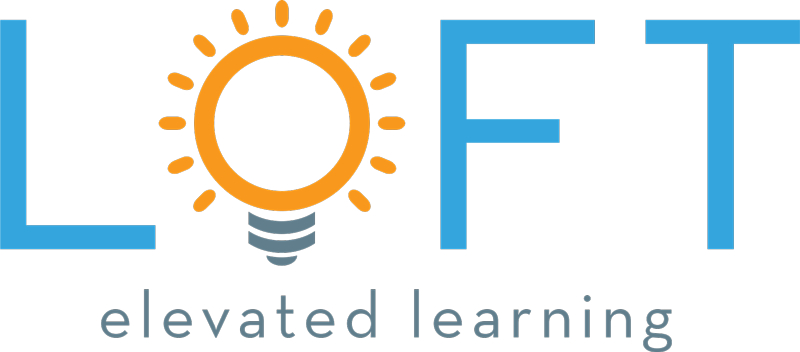
Our Philosophy
Something text goes hereAt the LOFT we support learning by providing resources to promote natural curiosity and intrinsic motivation. We provide the environment, facilitators and materials to explore big-ideas and develop projects that stimulate the learner to enthusiastically engage. The LOFT engages in promoting self -directed education (SDE) and skillfully combines Project-Based Learning (PBL). This is a student-centered pedagogy that involves a learn-by-doing approach resulting in a deeper knowledge through active exploration of real-world challenges and essential questions for the students to creatively solve. Our learners are provided the space to self-direct interests, participate at their desired level, and dive as deep into a topic as their interest dictate. These methods ignite a learning spirit that inspires the participants because the material is of interest and relevant to them. In this fashion, the learners have the opportunity to develop 21st Century skills such as problem solving, leadership, collaboration, written and verbal communication skills, and initiative.
Through PBL, learning goals are geared towards persuasive speech, collaboration & teamwork, and critical-thinking skills. These are the types of skills our children need to be productive, empathetic, independent contributor in our society as adults.
For families attending school and not home-schooled, it is important to note, under a PBL method, California core standards are meet in an integrated problem-solving fashion that make sense to the learner because they are explored in context. In the process of solving the problem, the facilitators can map required standards to the work, not vic versa.
At The LOFT no day is typical. Days will be filled with students problem solving, questioning, and seeking out their natural curiosities by facilitators who love what they do! Our goal as facilitators is to scaffold the projects to assist with the learning process. We strive to ask good questions, give hints but not answers, and redirect the conversation as needed to ensure the kids have a voice-and-choice to promote a high degree of interactive participation in the activities.
Our labs are designed to be ‘hands-on’ and tailored around the unique gifts of your child. While we adhere to, and build upon the “3 R’s” we also firmly believe that 21st century learning is multi-disciplinary. Students thrive on self-directed learning, in which voice & choice plays an important role in their development.
We explore open-ended questions collaboratively while providing an atmosphere that encourages a spontaneous free-flow of ideas. These ideas stimulate their curiosity towards a deeper, more critical inquiry.
LOFT facilitators coach students through turning their natural passions and curiosities into “entry points” for diving deeper into content and developing the 21st Century competencies of collaboration, critical thinking, problem solving, creativity and communication.
The 5 Essential Keys to Project Based Learning are:
- Real-World Connection: exploring authentic problems that drive the project’s content.
- Core to Learning: how they learn the integrated content that maps to California standards.
- Structured Collaboration: kids work together as facilitators carefully scaffold and guide the process.
- Student Driven: There is a shift in roles, the teacher is the facilitator and the student is provided the ability to have control of the direction.
- Multifaceted Assessment: integrated throughout the unit via many check-ins and the students owns the process as they assess their own progress.
Source: Peggy Ertmer, Founding Editor, Interdisciplinary Journal of PBL, Purdue University, IN
Research shows that compared with students receiving traditional instruction, those participating in PBL:
- become more engaged, self-directed learners;
- learn more deeply and transfer their learning to new situations;
- improve problem-solving and collaboration skills; and
- perform as well or better on high-stakes tests.
Source: Barron and Darling-Hammond, 2008: Brush & Saye 2008: Strobel and Van Barnevail 2009 Walker and Leary, 2009
Inspiring Essential Questions.
One of our main approaches while designing our curriculum is to target an ‘essential question’. What is an essential question? These are questions that require more contemplative time to process. Their aim is to stimulate deeper thought on a subject, provoke inquiry and ideas, and to spark meaningful connections in students.

